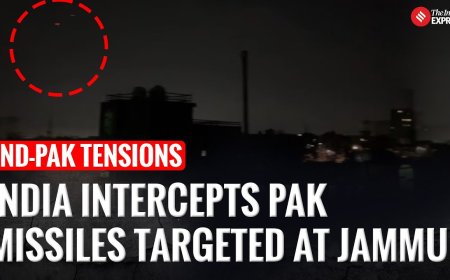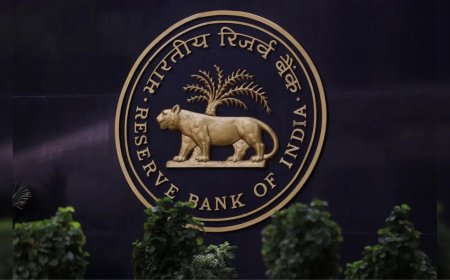Pakistan's security forces kidnap 10-year-old child, civilian in Mastung
Outrage in Balochistan as Pakistan's security forces allegedly abduct a 10-year-old boy and civilian in Mastung. Human rights groups demand urgent action.

Mastung, Balochistan — June 21, 2025 — In a development that has sparked fresh outrage across human rights circles, reports have emerged that Pakistan’s security forces allegedly abducted a 10-year-old boy and an adult civilian during an operation in Mastung, a troubled region in southwestern Balochistan. The incident, which reportedly took place on June 20, has further fueled accusations of unlawful detentions and growing authoritarian tactics in the conflict-prone province.
Incident Details Emerge Amid Silence from Authorities
Eyewitness accounts and local sources claim that during a routine security sweep in the Dasht area of Mastung, forces raided a local residence and forcibly detained a young boy and a civilian identified as a local school teacher. The boy’s family has publicly appealed for his release, stating that he was innocent and had no involvement in any militant or political activity.
“The child was playing outside his house when security vehicles surrounded the neighborhood. They stormed into our home without any warrant or explanation,” said the father of the child, who wished to remain anonymous for fear of reprisal. “They took him away with another man and gave no details on where they were being taken.”
Mounting Human Rights Concerns
This alleged abduction adds to the long-standing criticism of Pakistan’s security apparatus, particularly in Balochistan, where enforced disappearances have become a recurring concern. Local and international human rights organizations have frequently accused security forces of targeting civilians under the pretext of counter-insurgency operations.
Human Rights Watch has repeatedly called for transparency in military operations in restive areas, citing hundreds of cases where individuals—many of them students, activists, or laborers—disappeared without due legal process.
Amnesty International South Asia issued a statement on Friday:
“The kidnapping of a child by state forces, if verified, constitutes a grave violation of international humanitarian law. We urge Pakistani authorities to immediately investigate this incident and provide clarity on the child’s whereabouts.”
A Pattern of Impunity in Balochistan
Analysts suggest that such incidents are not isolated, but rather part of a wider pattern of coercive tactics employed by the state in a province plagued by separatist tensions, underdevelopment, and military oversight.
Dr. Rabia Akhtar, an international security analyst based in Islamabad, noted:
“Balochistan has long been a hotbed for insurgency, but the state’s response has too often involved heavy-handed tactics that erode civil trust. When even children are swept up in the net, it reflects a breakdown in governance and rule of law.”
Several local civil society groups staged protests across Quetta and Mastung demanding the safe return of the abducted individuals and accountability for the military officials involved. Placards reading “Stop Kidnapping Our Children” and “Justice for Mastung” were seen during demonstrations.
International Repercussions and Diplomatic Fallout
While the Pakistani government has yet to issue an official statement, the silence from both the military and civilian leadership has drawn criticism from international observers. Human rights issues continue to affect Pakistan’s global standing, particularly in its relations with Western donors and institutions such as the International Monetary Fund (IMF) and European Union, which often attach governance and rights-based conditions to financial assistance.
According to Amina Farooq, a political risk consultant in London:
“With Pakistan’s fragile economic recovery, stories like this create unwanted scrutiny at a time when Islamabad is negotiating new aid packages and foreign investment. The international community is watching, and persistent abuses undermine investor confidence.”
Impact on Investor Sentiment
The perception of political instability and human rights abuses in regions like Balochistan can have economic consequences. Balochistan is home to several strategic infrastructure projects, including the China-Pakistan Economic Corridor (CPEC). Unrest and social discord can delay projects and deter foreign investment.
The Pakistan Stock Exchange (PSX) has remained steady in recent sessions, but analysts warn that prolonged unrest in Balochistan could affect sectors such as energy, mining, and logistics.
Faraz Memon, a Karachi-based equity analyst, commented:
“Investors typically respond more to macroeconomic indicators, but underlying regional instability is always factored into long-term risk assessments. Episodes involving the military and civil rights violations can compound the perception of risk in frontier markets like Pakistan.”
Call for Transparency and Legal Reform
Legal experts argue that Pakistan must implement systemic reforms to prevent such alleged abuses. The Supreme Court has previously criticized intelligence agencies for operating beyond their constitutional mandate, yet little has changed in practice.
The National Commission for Human Rights (NCHR) has reportedly initiated an inquiry, though its influence is limited without executive backing.
Public pressure is mounting on the federal government, particularly the Interior Ministry, to break its silence and ensure the safe return of the kidnapped child and civilian. Social media platforms, especially X (formerly Twitter), are trending hashtags like #FreeMastungChild and #StopEnforcedDisappearances, reflecting widespread discontent.
A Nation at Crossroads
Pakistan faces a critical juncture in balancing national security with constitutional rights. The alleged abduction of a 10-year-old in Mastung serves as a tragic flashpoint in the broader debate over militarization, civil liberties, and democratic accountability. Unless addressed transparently and urgently, incidents like this will only deepen societal divides and weaken the state’s legitimacy both at home and abroad.
What's Your Reaction?
 Like
0
Like
0
 Dislike
0
Dislike
0
 Love
0
Love
0
 Funny
0
Funny
0
 Angry
0
Angry
0
 Sad
0
Sad
0
 Wow
0
Wow
0












































































